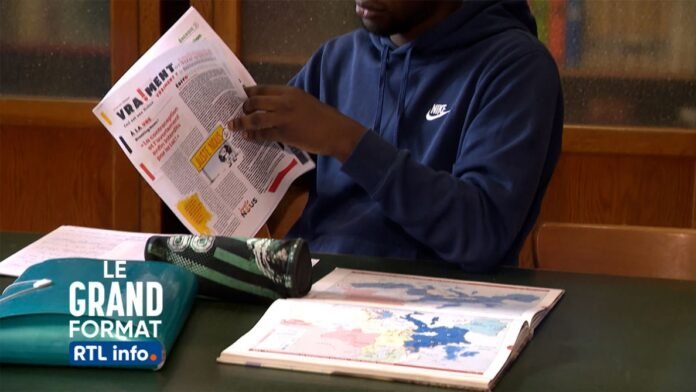On June 9, almost a million young people will go to the polls for the first time, with something big new this year. 16-17-year-olds will be able to vote on the European lists. But are they ready to vote?
In a basketball club in Schaerbeek, all the players know it: to be successful in a match, they have a role to play on the court. But what about their role in democracy? RTL info went to meet these young people. Some performances are quite appropriate, but politics is not yet the key word of the place. “I feel a little lost because I think we don’t have enough information,” admits Lucien, 17 years old. “We’re still in school and we have other priorities than politics, frankly.”. “We don’t feel worried”stresses Adam, 17 years old. “We are not necessarily involved in politics itself.”
Although this youth is undecided about the election fog, he is nevertheless determined to act as citizens. “I think it is good that we vote that way so that we can find out as quickly as possible what is happening here, in Belgium or in Europe.” Ethan excited. “I’m not stressed.”, resumes. Lucien. Exactly, I’m happy because I know I can have an impact on the world around me.’
Attract attention
What is the function of an MEP and what is his role? Sophie is a history teacher and she decided to raise awareness among her students through fun activities. “Is the warranty period for, for example, GSM a decision by the EU or not?”she asks before explaining our camera. “They realize a large part of their lives as young people, young consumers, young students, young people who have to take their driving test, or young people who want to go abroad for an internship, or who want to go abroad for research. .”indicates the teacher. “The European Union intervenes all the time in very different ways.”
A strategy that seems to be working. “There is a slightly disinterested movement among young people in relation to politics”admits Clara, 17 years old. “That’s why I think it’s good to talk about it in class. For many students, school is the only place where you discuss politics. And even if they haven’t made their choice again, they now feel more prepared.” That day, in class, Clara learned just like Jonathan “that one vote can make a difference.”
Visit the institutions
Interesting young people can therefore involve games, debates or even visits to European institutions. For example, Marc, a history teacher, took his students to the European Parliament for a special event to participate in the debate on the candidates for the presidency of the European Commission. A way to be in the heart of the action. “We’re kind of like kids going to an amusement park for the first time,” states this student while a classmate adds. “It can give us different points of view that we don’t even get on the Internet.”
This year, more than 900,000 young people go to the polls for the first time, or almost 10% of the electorate. A big challenge for political parties.
Find the large format on RTL Play
